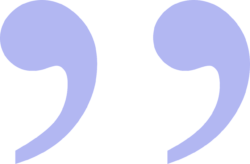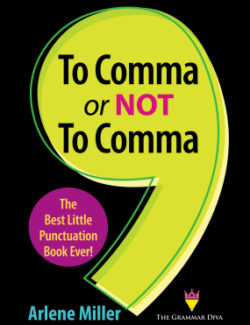 Last week’s post was about using quotation marks in dialogue and direct quotations. There are several other uses for quotation marks, and we will talk about those in this post.
Last week’s post was about using quotation marks in dialogue and direct quotations. There are several other uses for quotation marks, and we will talk about those in this post.
Words from Another Source: Use quotation marks if you are using a word or phrase that comes directly from another person or source:
She said she had a “surefire strategy” for getting the job.
The article said that if I used this product my house would be “cleaner than clean.”
Sarcasm: You can use quotation marks to indicate sarcasm.
Don’t you think she looks like the “belle of the ball” in that ugly dress?
Slang Words and Expressions: You can use quotation marks for slang words and expressions that are not the usual part of someone’s speech.
He told me he didn’t have enough “bandwidth” to think about all the projects I was talking about.
Words intentionally spelled incorrectly: If words are spelled incorrectly in dialogue to imitate the way someone said the word or phrase, do not use quotation marks (which would be single quotes if you used them).
She told me she was finally going to get a “liberry” card.
“I think I will finally go get a liberry card,” she told me.
Titles: Some titles are put in quotation marks; other are put in italics (or underlined if you are writing by hand). You never use both quotes and italics for the same title. Generally speaking, pieces of larger things are quoted, while the larger thing is in italics. Book titles, movie titles, names of newspapers and magazines, television series titles, music CD titles are in italics. Use quotation marks for chapter titles, TV episode titles, song titles, article titles.
Unusual Use in a Sentence: Use quotation marks for words and phrases that have an unusual use or abnormal placement in a sentence.
I didn’t like her “I-am-better-than-you” attitude.
Definition of a Word in a Sentence: Put quotation marks around the definition of a word in a sentence. The word itself should be in italics.
She informed me that the word enervate means “to weaken” even though it sounds as if it might mean the opposite of that.
Jargon: Jargon is language used and understood by a specific group of people, for example, teenagers, doctors, lawyers, computer programmers. If you are writing to an audience familiar with the jargon, you need no quotation marks. If you are writing to an audience that may be unfamiliar with the word, put it in quotation marks the first time you use it in a piece of writing.
The computer expert told the novice that she was going to be backing up to the “cloud.”
After Labeled or Marked: Use quotation marks around words that follow labeled or marked.
Be careful with the big box that is labeled “Fragile. This side up.”
There are also some places where you might think you need quotation marks, but you do not.
1. You don’t need quotation marks around yes or no unless they are part of a direct quote.
Answer yes to any of the questions below if they are true.
When I asked her if she was married, she replied, “Yes.”
2. You do not need quotation marks around common and familiar expressions and idioms.
Wow, it is raining cats and dogs this morning.
I was just pulling your leg when I told you I had a gift for you!
3. Do not use quotation marks around indirect quotes.
When you asked me ten minutes, ago, I said that it was not raining.
—————————————————————————




I’m confused by the following information. Although I’m quoting you, I am intentionally not using quotation marks because that would lead to further confusion, at least on my part.
Words intentionally spelled incorrectly: If words are spelled incorrectly in dialogue to imitate the way someone said the word or phrase, do not use quotation marks (which would be single quotes if you used them).
She told me she was finally going to get a “liberry” card.
You said not to use quotation marks and, if you did, to use single quotes. The example just above is the opposite. What am I missing? Thank you.
Words spelled incorrectly in quoted dialog because that is the way someone is pronouncing something are not in quotes (except the quotes used for the dialog itself.) In writing that is not a quote, if you spell something incorrectly intentionally, you use quotation marks.
I love Ms. O’Farrell’s question and your answer.
Thank you!
Which is correct, Different than . . . or Different from?
Different from….is correct.
Yay. My helpful mnemonic for people to remember the right way is to suggest “different than” can be shortened to “dt” and we all know how bad “the dts” can be. I’d guess that “different than” is used 75% of the time. Aargh. You are my hero. No more sexist “heroine” or “actress” or “waitress” and how many others I wonder.
Good hint. Thanks!
Another wonderful lesson. So clear and helpful!
Thanks so much! Glad you are still reading the posts!
re: I didn’t like her “I-am-better-than-you” attitude.
Why do you need the dashes?
The whole clause is a compound modifier that goes together to modify attitude.